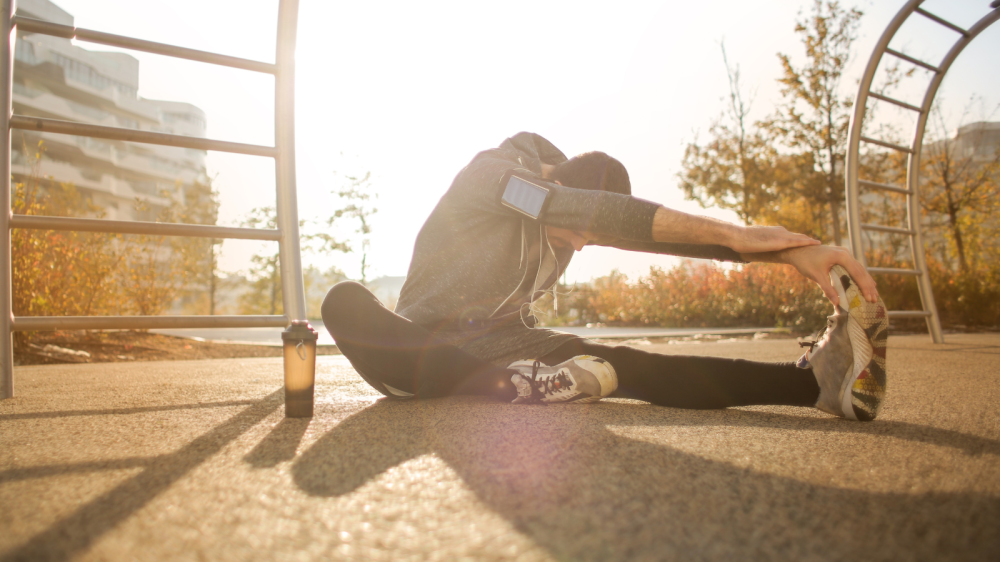You need to drink cold water after exercise. It is one of the most important nutrients for the body after exercising to compensate the body for the water it lost through sweating and also to replace the body for the fluids it lost, but we must drink water without excessive intake of large amounts of water so as not to cause a deficiency. Sodium in the blood, especially for people who drink water, is exercise, and you must drink a sufficient amount of water that does not harm the health and safety of the body. We will show you in this article, within Smartly , the harmful effects of drinking cold water after exercise on the human body.
Is drinking cold water after exercise beneficial or harmful?
Drinking cold water after exercise is of great importance. Water is an essential element in our diet because it supports many body functions in general, including regulating body temperature and the functions of vital organs such as the kidneys, digestion, and brain functions. The temperature of the water you drink after exercising is essential, when exercising. Our body temperature rises, and when we drink cold water after exercise, our body temperature decreases. Drinking water after exercise helps improve the body’s hydration to enhance performance during exercise. Therefore, doctors advise keeping the body hydrated before and after exercise to improve cognitive and immune functions.
The harms of drinking cold water and its effect on exercise
One of the harmful effects of drinking cold water after exercise or during exercise is comparing the body temperature and the water temperature. Failure to achieve balance may cause adverse results, and the person who drinks cold water while performing exercise may cause the body to become lethargic, in addition to heart and stomach pain. Therefore, We provide you with some information about what is allowed during exercise and what is not allowed to avoid harm that negatively affects the body.
The harmful effects of drinking cold water during exercise are:
- Vomiting and nausea.
- Confusion.
- Loss of energy, drowsiness, fatigue.
- Insomnia and irritability.
- Muscle weakness.
- Muscle spasms or seizures
- Coma
However, you must know the normal rate of drinking water, especially after exercising, in order to replace the body with the fluids it has lost in a correct way and without causing any physical problems. Athletes are advised to drink certain amounts of water.
The correct amount of water to drink before, during and after exercise
Before starting exercise:
It is recommended to drink 500 to 600 milliliters of water two or three hours before exercising, and drink 200 milliliters 20 minutes before or during the warm-up period.
Drinking one cup of moderate or not very cold water or ice water helps you exercise without stomach or chest pain or feeling nauseous or vomiting due to the increased movement during exercise and the stomach vibrations resulting from performing the exercises. Therefore, drinking only one cup immediately before exercise is sufficient to avoid Damage or problems resulting from increasing the amount of water you drink, and then the same theory applies to food. You cannot do exercises with a lot of movement after eating a large amount of food because it may cause you to vomit.
During exercises:
Doctors advise drinking 200 or 300 cups of water every 20 minutes during exercise.
Drink cold water after exercise with a small amount of water if you feel the need to do so, but not a large amount, or drink cold water because cold water may cause heart problems because the body is in a state of activity and physical effort pushes the body to increase the temperature.
After exercises
Sports specialists advise drinking 235 milliliters about 30 minutes after finishing exercise to maintain good health.
You can drink cold water after exercise in a moderate amount, but not very cold, especially immediately after the end of the exercises, and not a large amount, but at intervals, so as not to cause shock to the stomach or heart or a sudden change in body temperature, which prompts the body to make an effort to control the body temperature, which ranges Between 36 to 37 degrees Celsius.
There is no doubt that drinking cold water after exercise is one of the most important basic things that helps keep the body active and hydrated, especially with exercise, and especially when temperatures rise in the summer. Some doctors have stressed the necessity of drinking water while exercising because it replaces the body with fluids that It is lost when exerting physical effort. Relatively cold drinks must be consumed to compensate for the fluids that the body loses as a result of the body’s temperature rising, and to maintain its stability and nature, as water contributes to improving athletic performance, especially when practicing strength and endurance exercises, in addition to working to reduce body temperature.
Use sports drinks to maintain health
Drinking cold water after exercise is no less important than sports drinks. Sports drinks contain water (acidic) electrolytes in addition to carbohydrates. Some believe that these drinks can enhance athletic performance because they help replace water and salts that the body loses during exercise, especially during exercise. For a long time, it replaces the carbohydrates that the body loses, but drinking it is not very important for some people because some light exercise does not require these fluids.
Drinking cold water after exercise and during life is the basis of life. It helps transport oxygen to the cells, maintains the balance of salts in the body, provides the body with energy and vitality, gives it sufficient moisture to regulate body temperature, builds muscles in a healthy and safe way, protects the body from diseases, gives the body moisture and reduces dehydration. Especially when exercising, but this water must be relatively cold to regulate body temperature and build muscles in a healthy way, while drinking appropriate quantities to preserve health.

